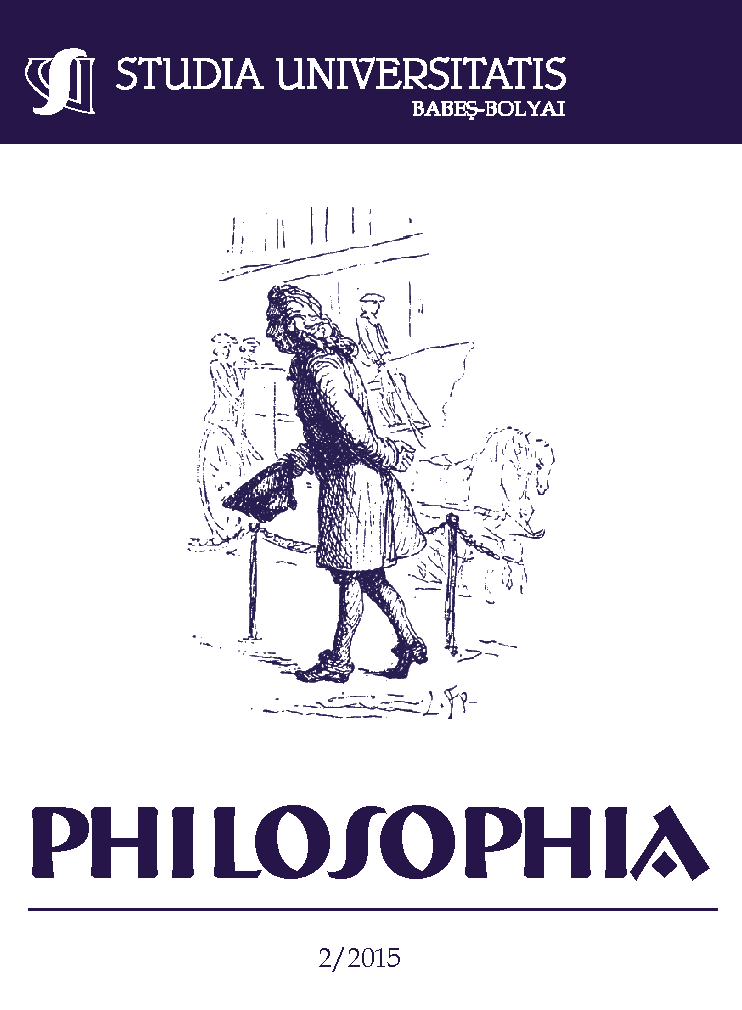MYTHOLOGY AND NATURE IN SCHELLING’S PHILOSOPHY
Keywords:
Philosophy of Mythology, German Idealism, Nature, Consciousness, F.W.J. SchellingAbstract
According to a scientist standpoint, mythology holds no value whatsoever. This is nothing but a mass of superstitions: a polymorphic arbitrariness of imagination. On the other hand, in a neo-structuralist reading, the symbolic thesaurus of mythology is pure esthetical arbitrary discourse. Both views are denied in Schelling’s philosophy of mythology. His philosophy of nature is a highly speculative attempt to provide a unity that specialized scientific endeavours have long lost. However discarded may this be in the eyes of the scientific establishment it is still very acclaimed by contemporary environmental philosophy or by anti-positivistic contemporary approaches to science. But it is in Schelling’s philosophy of mythology that we find a different use and understanding of nature which we believe is a very profound although eclipsed or forgotten approach. Schelling argues that mythology is not just an allegorical knowledge of nature. This is something as profoundly embedded in the original unconscious origins of mankind’s self-consciousness as the genesis of language or the genesis of peoples. These are all original and immemorial constitutive acts in the unfolding of the universal consciousness of mankind. The countless variety of divine images is not to be seen as an infantile anthropomorphic description of nature. Quite the contrary: mythology is a cosmo-morphic description of the Absolute within the history of the transcendental consciousness. Naive understandings of nature were originally used as elementary building-blocks in the never ending effort of human consciousness to thematise and understand itself and the whole. Even prior to philosophy and science, mythology was the first act of self-consciousness, Uranfang that practically constituted humankind. Our purpose is to expose and develop the consequences of this utterly revolutionary reading of nature as a fundamental part of the mythological process.
References
F.W.J. Schellings sämtliche Werke (SW, I-XIV), hrsg. Von K.F.A. Schelling, Stuttgart, 1856-1861
F.W.J. Schelling, Historical-critical Introduction to the Philosophy of Mythology, State University of New York Press, 2007
F.W.J. Schelling, System of Transcendental Idealism, University Press of Virginia, Charlottesville, 2001
F.W.J. Schelling, The Philosophy of Art, University of Minnessota Press, Minneapolis, 1989
***
Beach, Edward Allen, The Potencies of God(s), Schelling’s Philosophy of Mythology, State University of New York, 1994
Bowie, Andrew, Schelling and Modern European Philosophy - An Introduction, Routledge, London &NY, 1993
Buchheim, Thomas, Die Idee des Existierenden und der Raum. Vernunfthintergründe einer Welt äußerer Dinge nach Schellings Darstellung des Naturprozesses 1843/44, Kant-Studien, Band 106, 2015
Frank, Manfred, What is Neostructuralism, University of Minnesota Press, 1984.
Sandkühler, H.J. (ed.), Studien zur Naturphilosophie F.W.J. Schellings, Suhrkamp Verlag Frankfurt am Main, 1984
Sandkühler, H.J. (ed.), F.W.J. Schelling, J.B. Mezler Verlag, Stuttgart, Weimar, 1998
Sandkühler, H.J. (ed.), Natur und geschichtlicher Prozeβ. Studien zur Naturphilosophie F.W.J. Schellings, Suhrkamp, Frankfurt am Main, 1984
Wetz, Franz Joseph, Friedrich W.J. Schelling zur Einführung, Junius, Hamburg, 1996
Downloads
Published
How to Cite
Issue
Section
License
Copyright (c) 2015 Studia Universitatis Babeș-Bolyai Philosophia

This work is licensed under a Creative Commons Attribution-NonCommercial-NoDerivatives 4.0 International License.





